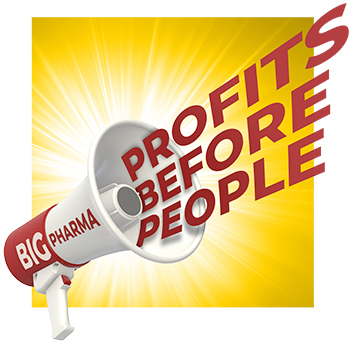
A drug company recently filed suit against the U.S. Food and Drug Administration (FDA) for the “free speech” right to tout its products for untested, “off label” uses.
The company is Amarin. The particular drug in question is Vascepa (icosapent ethyl) which some refer to as the “fish oil drug.” Vascepa is currently indicated for lowering triglycerides in patients with severely high levels.
The company wants to be able to promote the drug directly to doctors as being suitable for ALL patients considered at risk for heart disease, regardless of their levels of triglycerides. At the same time, the company admits it won’t finish safety testing of the drug for this until 2017.
The FDA has long banned direct “off label” promotion (pressuring doctors to prescribe drugs for purposes other than those listed on the label) by manufacturers and drug reps. However, drug makers may send peer-reviewed medical journal articles and excerpts from medical textbooks to physicians and are permitted to answer questions asked directly by physicians under certain circumstances. In this way, the companies are able to convey verified information to doctors, who may then prescribe “off-label” as they see fit.
Unfortunately, manufacturers have abused this regulation and have turned it into a tactic for growing sales and profits at the expense of consumers’ safety and health. Other Big Pharma companies have pursued this marketing channel for untested “off-label” uses of drugs. A few examples of drugs promoted in this way include Lipitor, Wellbutrin, Levaquin, and Topomax. The consequences for some patients have been dire.
Loosening “Off Label” Marketing Ban Threatens Patient Safety
The FDA approves drugs and devices for certain indications and usages only after supporting studies and tests identify risks to patients. Doctors and patients rely on this FDA approval process.
A pharmaceutical company’s alleged “free speech” rights to market “off label” uses of the company’s product(s) should not trump FDA’s ability to ensure that consumers are using pharmaceuticals for their safe and intended uses. Very simply, if the FDA approves a drug for Condition “A”, but not for Condition “B”, then how the manufacturer promotes the drug for Condition “B” must have some restrictions on it if the American public is to be assured that the drugs they are taking are safe.
Thus, not only should the FDA vigorously fight the Amarin suit, but it should also be very conservative in loosening any “off label” marketing restrictions in its current rulemaking.
Questions to Ask Your Prescribing Doctor
Doctors aren’t required to disclose off-label drug use to patients and sometimes they may not even be aware that they are prescribing a drug off-label. So, WebMD recommends asking your doctor the following questions whenever you are given a prescription:
- Is the medication used on- or off-label?
- What is the evidence behind your decision to prescribe this to me?
- How certain are you that I am likely to benefit from this medication?
If the drug is being used off-label, you may want to check with your insurance company to make sure it’s covered. You might also consider asking your doctor if there are any clinical trials studying the off-label use in which you could enroll. A number of clinical trials are being done to test the safety and effectiveness of off-label drug uses.
